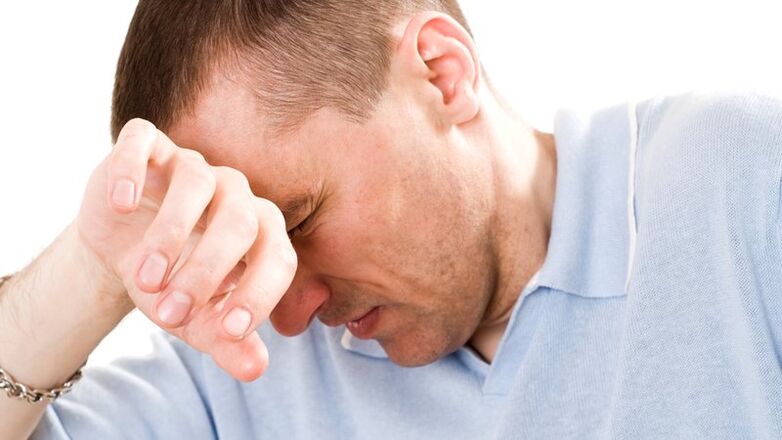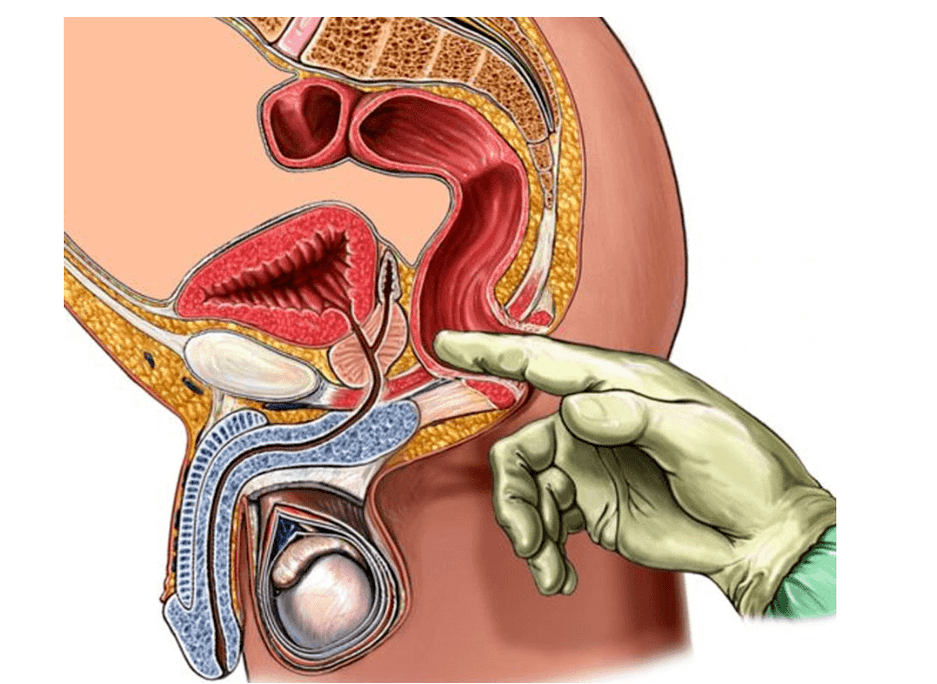
Prostatitis is an inflammatory process that is localized in the prostate. This pathology is widespread and is often diagnosed in the reproductive age of men. The prostate (the second name for the prostate) is located under the bladder and partially surrounds the ureter (urethra). Therefore, even a minor dysfunction of this organ leads to dysfunction of the genitourinary system.
The reasons for the development of prostatitis
Prostatitis is classified as an inflammatory process, but this does not mean that it is caused solely by pathogenic microorganisms. Doctors (andrologists are engaged in diseases of the male reproductive system) identify several reasons for the development of the pathology in question:
- Congestion of blood in the pelvis. This refers to the violation of the microcirculation of blood in the prostate and nearby organs, which provokes an increase in the organ. Injury can occur against the background of a sedentary lifestyle, obesity (it does not need to be critical) in the postoperative period.
- Infection of the genitourinary system. Most often, doctors isolate gonococci, staphylococci, chlamydia, and trichomonas when examining a patient with prostatitis. Very rarely, against the background of a sore throat or flu, an infection can penetrate the prostate - in this case, the inflammatory process in question is differentiated as a complication.
- Regular trauma to the pelvic organs. Because of this, drivers develop prostatitis - they are constantly exposed to stress, the prostate experiences tremors and vibrations.
- The invasion of bacteria through biological body fluids. In everyone's body there are colonies of bacteria that live in the intestines and urethra. In their normal state they are absolutely harmless and only become pathogenic and cause inflammatory processes under favorable conditions (weakening of the immune system, prolonged use of medication, chronic diseases, human immunodeficiency virus). These bacteria can enter the prostate via the blood or lymph.
In addition, when diagnosing an inflammatory process in the prostate, it is also possible to take into account factors that serve as provocateurs of pathology:
- regular hypothermia - this may be due to the specifics of working conditions or ignoring the rules for wearing clothes at certain times of the year;
- Disorders of the endocrine system - excessive or insufficient production of male hormones, diagnosed diabetes mellitus;
- too active sex life, as well as prolonged abstinence - the prostate is exhausted;
- all chronic diseases - there are officially registered cases of the development of prostatitis against the background of untreated bronchitis, tooth decay, cystitis, urological infections.
Symptoms of the inflammatory process

Andrologists distinguish between the main and indirect signs of a developing inflammatory process in the prostate. The main symptoms are pronounced:
- urination becomes more frequent, regardless of the amount of fluid ingested;
- the moment of urine outflow is painful, the man has cramps and burning sensation in the urethra;
- the body temperature (hyperemia) rises to critical values.
These symptoms are quickly joined by a burning sensation in the entire perineum and pain during bowel movements.
Indirect signs of inflammation in the prostate aren't as noticeable, but men shouldn't ignore them:
- ejaculation is accelerated - the time of sexual intercourse is shortened;
- an erection can be quite long at night;
- decreased sex drive - partially or completely;
- "Flakes" or white "threads" appear in the urine.
Please note: these indirect signs indicate the beginning of the development of the inflammatory process in question - it responds well to treatment and is uncomplicated.
Prostatitis is divided into acute and chronic forms, each of which has its own characteristics.
Acute prostatitis
Acute prostatitis always begins suddenly and manifests itself:
- an increase in temperature;
- persistent pain in the perineum;
- frequent use of the toilet;
- the release of a very small amount of urine with the feeling of a full bladder.
Please note: urinary retention is considered to be the most dangerous condition in the acute form of the inflammatory process of the prostate. In this case, the man feels a strong urge to go to the bathroom, but urine will not be released even with intense exertion. Acute urinary retention is accompanied by severe pain in the area of the anatomical position of the bladder, a feeling of pressure - patients describe their condition as "now the bladder is bursting". The condition requires immediate medical attention, which consists of using a catheter - it is inserted into the urethra and bladder and literally "squeezes" the swollen gland. As soon as the catheter reaches the bladder, the urine drainage begins and the patient is immediately relieved, his condition normalizes for a short time.
Chronic prostatitis
This type of pathology under consideration is almost asymptomatic - occasionally a man experiences short-term pain in the perineum (similar to lumbago), notes changes in sexual intercourse - he can either lengthen or contract. In addition, the patient becomes irritable, sleep is restless at night, the urine stream may become weak (this is due to the narrowing of the urinary tract), in the morning white blood clots in the urine in the form of flakes or threads.
Please note: The chronic form of the inflammatory process in the prostate can develop itself imperceptibly for the patient. The fact is that acute prostatitis proceeds with mild symptoms at a young age, and if a young man likes to drink alcohol or is too busy with his work, then he does not have time to pay attention to changes in urination or periodic pain in the perineum. Symptoms of acute prostatitis go away over time, but that doesn't mean the disease has receded - it has simply become chronic.
Methods of treating prostatitis
Treatment of the inflammatory process in the prostate should be carried out only under the supervision of an andrologist. Not only does it diagnose prostatitis itself (often its symptoms are the same as prostate cancer), but it also reveals the true cause of its occurrence. In general, various therapies can be used to treat inflammation of the prostate.
Medication
With prostatitis, antibacterial agents (antibiotics) can be prescribed, but only if the examination isolated pathogenic bacteria and identified them as the cause of the development of the pathology. Simultaneously with antibiotics, the patient is prescribed probiotics or prebiotics - drugs that normalize the intestinal microflora and resist the development of pathological processes in it.
If the inflammatory process began as a result of the negative effects of external factors (hypothermia, trauma), anti-inflammatory nonsteroidal drugs are prescribed.
With hormonal disorders, a man must undergo hormone therapy.
Please note: Treatment with medication is very variable, so it should be selected individually - self-medication is strictly prohibited in this case.
physical therapy
Treatment of inflammation of the prostate should be comprehensive. And against the background of taking medication, it is effective to conduct certain physiotherapeutic procedures:
- Electrical stimulation - accelerates metabolic processes, provokes more active production of hormones, restores the structure of the gland.
- Magnetic therapy is a painless procedure that helps reduce the level of inflammation and clear the prostate gland from swelling.
- Massage of the prostate - is carried out only after performing medical measures related to acute inflammation, the procedure is painful, but very effective.
Ethnosciences
Please note: recipes from the conventional medicine category should not be the only method of treatment - they can only speed up the therapeutic process and improve the effects of medication and physiotherapy.
Some of the most effective and safest methods of alternative treatment include:
- Eat pumpkin seeds. They contain zinc, which is an essential element for men's health. With prostatitis, you need to consume 30 raw seeds 30 minutes before meals throughout therapy.
- Pumpkin honey balls. Peel 100 grams of raw pumpkin seeds, grind in a meat grinder (or in a blender, but not into small crumbs) and mix with 200 grams of honey. Roll the resulting mass into small balls and store in the refrigerator. Before eating (30 minutes) you need to eat 1-2 balls - do not chew, it is better to dissolve slowly. Treatment with this prescription will continue until the symptoms of prostatitis go away.
- A brew made from hazelnut leaves. You can collect hazelnut leaves yourself or buy dry raw materials in the pharmacy, a glass of boiling water will be needed for a tablespoon of the source. The broth is brewed like normal tea for 20 minutes, filtered and taken in 50 ml at least 4 times a day. Please note: hazelnut bark is also sold in pharmacies - it can also be used to treat prostatitis and according to the same prescription. Note, however, that the brewing time for the crust will double.
- Parsley juice. Prepare it from the green leaves of the plant and take 1 tablespoon 3 times a day before meals.
- Broth made from parsley seeds. You need to take 1 tablespoon of parsley seeds, pour 400 ml of boiling water and leave for 2 hours (you can do this in a thermos). You need to take the broth in the amount of 1 tablespoon every morning and evening every day.
In any case, no matter how safe the remedy may seem, you must first consult your doctor. For example, if a man has cholelithiasis in addition to prostatitis, then the use of pumpkin seeds is strictly forbidden for him - each appointment is made strictly individually.
Diet and lifestyle

In order to get the best result during therapeutic actions related to prostatitis, you need to follow a certain diet. It should remove fatty meat, smoked and too salty dishes, pastries and chocolate from the menu. The menu may include seafood, milk and its derivatives, steamed vegetables. With prostatitis, it is very useful to use freshly made juices from vegetables and fruits - they will help strengthen and restore the immune system.
During therapy, you need to exclude alcohol and lead an active lifestyle - at least do morning exercises, walk more and get rid of extra pounds.
Prostatitis is not considered a life-threatening disease for men, but ignoring its symptoms can lead to the development of serious complications. One of the most difficult consequences is male infertility and the loss of erectile function, which are common with prolonged chronic prostatitis.





















